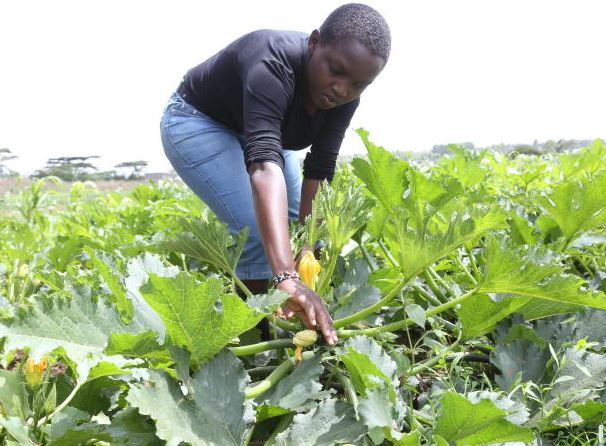×
The Standard e-Paper
Home To Bold Columnists

Phylis Kanji at her six-acre farm Njoro near Egerton University. [Boniface Thuku, Standard]
Lillian Mona had always wanted to venture into commercial vegetable farming.